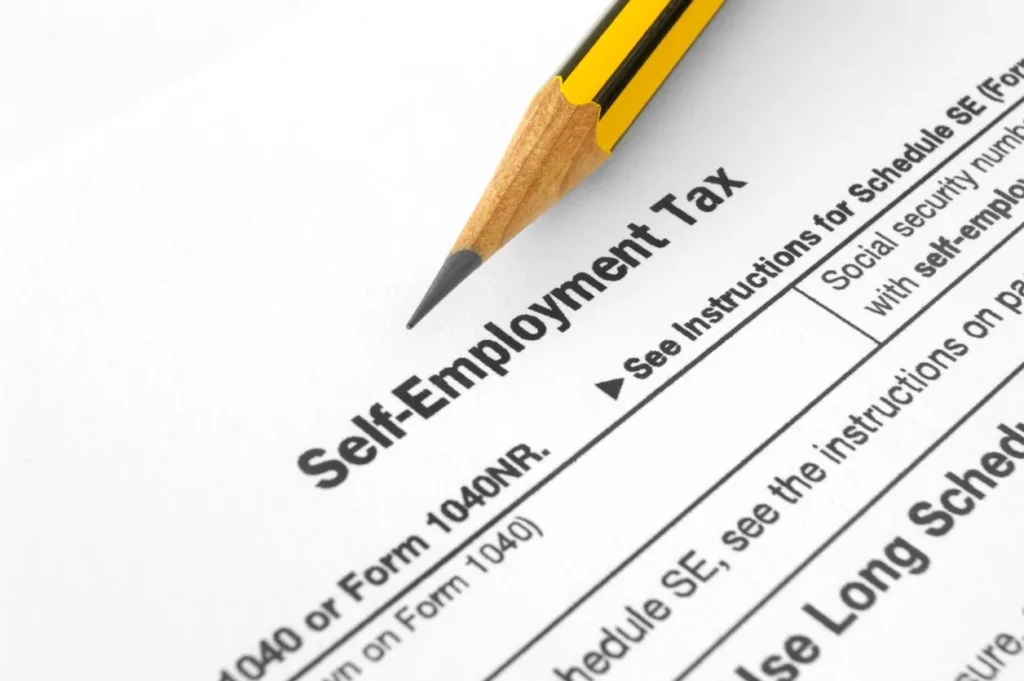Do U.S. Expats Pay Self-Employment Tax?

- What Is Self-Employment Tax for U.S. Expats?
- Why Does FEIE Not Eliminate Self-Employment Tax?
- Which Countries Have Totalization Agreements?
- Do I Owe Self-Employment Tax? Quick Assessment
- What About Countries Without Totalization Agreements?
- How Do I Calculate Self-Employment Tax?
- What About State Tax Considerations?
- Are There Business Structure Alternatives?
- What Mistakes Cost Thousands?
- What Are My Next Steps?
- Peace of Mind for Complex Expat Tax Situations
The IRS collected over $148 billion in self-employment taxes in 2024, with expat contributions representing a growing portion as more Americans work abroad. Most Americans abroad are surprised to learn that they still owe the U.S. self-employment tax, at 15.3%, on their foreign business income, even when they qualify for the Foreign Earned Income Exclusion.
Quick Answer: Yes, U.S. expats typically pay self-employment tax on foreign business income. The self-employment tax rate is 15.3%, consisting of 12.4% for Social Security and 2.9% for Medicare. Unlike regular income tax, self-employment tax cannot be eliminated by the Foreign Earned Income Exclusion. However, totalization agreements with 30 countries may provide relief in specific situations.
Whether you’re a freelance consultant in Bangkok, a digital marketer in Barcelona, or an entrepreneur in Berlin, knowing these rules helps you budget correctly and avoid costly surprises come tax time.
Self-Employed Abroad? U.S. Self-Employment Tax Still Applies.
What Is Self-Employment Tax for U.S. Expats?
Self-employment tax funds Social Security and Medicare programs. If you’re self-employed abroad, you pay both the employee and employer portions, totaling 15.3% on net self-employment income.
Here’s the breakdown:
- Social Security: 12.4% on income up to $176,100 for 2025 (increased from $168,600 in 2024)
- Medicare: 2.9% on all self-employment income with no cap
- Additional Medicare: 0.9% on income exceeding $200,000 (single) or $250,000 (married filing jointly)
You must pay self-employment tax if your net earnings from self-employment were $400 or more. This applies regardless of your age or whether you’re already receiving Social Security benefits.
Why Does FEIE Not Eliminate Self-Employment Tax?
Many expats discover this harsh reality after filing their first tax return abroad. The IRS clearly states that excluded income under the Foreign Earned Income Exclusion “will reduce your regular income tax but will not reduce your self-employment tax.”
Here’s a real-world example:
Sarah, a freelance graphic designer in Portugal, earns $80,000 in 2025. She qualifies for the full FEIE and excludes all $80,000 from federal income tax. However, she still owes:
- Self-employment tax calculation: $80,000 × 92.35% × 15.3% = $11,307
Even though Sarah pays $0 in federal income tax, she still owes $11,307 in self-employment tax.
Who doesn’t love a tax break? Download our easy-to-use excel calculator to get an estimate of how the foreign earned income exclusion can save you money.
"*" indicates required fields

Which Countries Have Totalization Agreements?
Totalization agreements eliminate dual Social Security taxation when a worker is required to pay Social Security taxes to both countries on the same earnings. Currently, the U.S. has agreements with 30 countries.
Countries with U.S. Totalization Agreements: Australia, Austria, Belgium, Brazil, Canada, Chile, Czech Republic, Denmark, Finland, France, Germany, Greece, Hungary, Iceland, Ireland, Italy, Japan, Luxembourg, Netherlands, Norway, Poland, Portugal, Slovakia, Slovenia, South Korea, Spain, Sweden, Switzerland, United Kingdom, Uruguay.
How It Works:
Suppose you’re self-employed in Spain and paying into the Spanish social security system. In that case, you can potentially avoid the U.S. self-employment tax by obtaining a Certificate of Coverage from Spanish authorities. The agreement states that if you are a self-employed expat in Spain and are contributing to the Spanish system, you are exempt from paying self-employment tax in the United States.
Each agreement has different rules. Some countries, like Canada, generally exempt self-employed expats from US self-employment tax if they’re paying into the local system, while others have more complex requirements.
Do I Owe Self-Employment Tax? Quick Assessment
You likely owe the U.S. self-employment tax if:
- You earn $400+ from freelance work, consulting, or business income abroad
- Your host country doesn’t have a totalization agreement with the U.S.
- You’re not paying into your host country’s social security system
- You haven’t obtained a Certificate of Coverage
You might avoid the U.S. self-employment tax if:
- Your host country has a totalization agreement with the U.S.
- You’re actively paying into the foreign social security system
- You obtain proper documentation (Certificate of Coverage)
- The agreement’s specific rules apply to your situation
What About Countries Without Totalization Agreements?
U.S. taxpayers living in countries such as Singapore, Hong Kong, Costa Rica, and Panama face potential double social security taxation. In these locations, you may be required to pay both U.S. self-employment tax and local social insurance contributions.
High-Risk Destinations for Self-Employed Expats: Singapore, Hong Kong, Thailand, UAE, Costa Rica, Panama, Mexico, Philippines, Indonesia, Vietnam, India, Egypt, Turkey, New Zealand.
How Do I Calculate Self-Employment Tax?
Understanding the calculation helps you budget accurately:
- Step 1: Calculate net self-employment income (gross income minus business expenses)
- Step 2: Apply 92.35% (to account for the employer-equivalent deduction)
- Step 3: Apply 15.3% tax rate
Example: Net self-employment income of $100,000
- $100,000 × 92.35% = $92,350
- $92,350 × 15.3% = $14,130 self-employment tax owed
You can deduct half of your self-employment tax (7.65%) when calculating your adjusted gross income, but this doesn’t reduce the actual self-employment tax owed.
What About State Tax Considerations?
Most states don’t recognize the FEIE, meaning your excluded foreign income might still be subject to state taxes if you maintain state tax residency. Self-employment tax is federal only, but don’t forget about potential state income tax obligations.
Are There Business Structure Alternatives?
Some expats consider incorporating to potentially reduce the self-employment tax burden. However, this creates other complexities:
- Foreign corporations may trigger Controlled Foreign Corporation (CFC) rules
- U.S. corporations don’t eliminate the underlying tax obligations
- Professional guidance is essential before making structural changes
What Mistakes Cost Thousands?
- Assuming FEIE eliminates all taxes: The biggest misconception. Self-employment income excluded under FEIE still faces the full 15.3% self-employment tax.
- Not researching totalization agreements: Missing potential exemptions in countries with agreements.
- Failing to Obtain Certificate of Coverage: Even in totalization agreement countries, proper documentation is required.
- Not planning for quarterly payments: Self-employment tax often requires quarterly estimated payments.
What Are My Next Steps?
If you’re in a totalization agreement country:
- Research your specific country’s agreement terms
- Determine if you’re paying into the local social security system
- Apply for a Certificate of Coverage if eligible
- Consult with an expat tax professional
If you’re in a non-agreement country:
- Budget for the full 15.3% self-employment tax
- Consider quarterly estimated payments
- Track all business expenses to minimize net income
- Plan for both the U.S. and potential local social insurance obligations
For everyone: Keep detailed records of your foreign residence, business activities, and any social security contributions made abroad.
Peace of Mind for Complex Expat Tax Situations
Self-employment tax rules for expats are intricate, with significant financial consequences for getting them wrong. Totalization agreements vary by country, and the rules change based on your specific employment situation, residency status, and income sources.
Greenback is an American company founded in 2009 by U.S. expats for expats. We focused exclusively on expat taxes and always have. Many of our CPAs and Enrolled Agents are expats themselves, and because they live in 14 time zones, they experience firsthand the challenges of self-employment abroad. They have the knowledge and patience to help you manage the complicated U.S. tax system and your local rules.
If you’re ready to be matched with a Greenback accountant, click the get started button below. For general questions on expat taxes or working with Greenback, contact our Customer Champions.
Self-Employment Tax Is One of the Most Misunderstood Expat Rules.
This article provides general information and should not be considered specific tax advice. Self-employment tax rules can be complex, and individual situations vary. We recommend consulting with a qualified tax professional for guidance on your specific circumstances.


